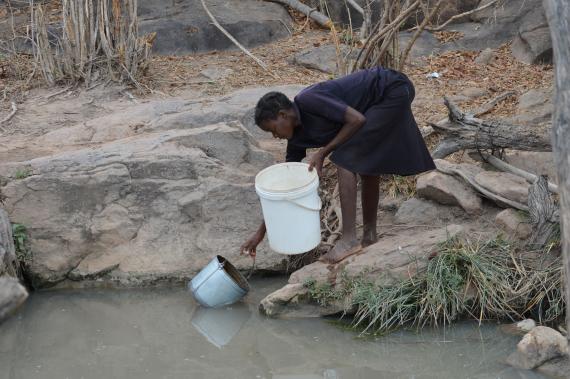
BY SILAS NKALA
The government has been urged to provide free water treatment methods to 40% of the rural communities that are still dependent on surface and unprotected sources.
This was revealed in the Zimbabwe Vulnerability Assessment Committee (ZimVac) 2020 report released recently.
The report revealed that rural communities needed to enjoy the right to “potable water” as enshrined in section 77(a) of the Constitution.
Matabeleland Institute for Human Rights (MIHR) yesterday expressed concern over the challenges encountered by rural people in accessing clean water.
“About 40% of rural communities nationally are still relying on unsafe water sources with 17% using limited safe water sources, 14% using unimproved water, and 9% using surface water,” MIHR co-ordinator Khumbulani Maphosa said.
Maphosa said the ZimVac report revealed that most households boil water as a treatment method (54,4%), while others use other methods such as adding bleach/chlorine (jik or water guard) 21,4%, water treatment tablet (12,7%), strain it through cloth (2,5%), and use water filters (1,7%).
The report also stated that Matabeleland South province had the highest proportion of households using surface water sources at 21%, followed by Masvingo and Mashonaland West (both 10% each), Matabeleland North and Midlands (both (9% each), Mashonaland Central (8%), with Mashonaland East and Manicaland having 4% and 3%, respectively.
- Chamisa under fire over US$120K donation
- Mavhunga puts DeMbare into Chibuku quarterfinals
- Pension funds bet on Cabora Bassa oilfields
- Councils defy govt fire tender directive
Keep Reading
The districts with the highest proportion of households using surface water are Mangwe (44,7%), Kariba (32,5%), Chiredzi (28,2%), Insiza (26,9%), Bulilima (25,6%), Gwanda (25,5%) and Guruve (22,5%).
“This is a serious cause for concern as surface water is unsafe for drinking if it is not treated properly,” Maphosa said.
“MIHR implores the government to avail free water treatment chemical options for highly-affected communities.”
Zimbabwe National Water Authority spokesperson Marjorie Munyonga recently said service delivery was being stifled by the over $1,9 billion debt owed by government ministries, local authorities, irrigation schemes, domestic clients, agricultural estates, schools, industry and parastatals.
She said the revenue derived from the water bills was important for Zinwa to procure water treatment chemicals, carry out maintenance work on water treatment plants, repair and maintain dams, pay energy costs and statutory obligations such as taxes and levies.
- Follow Silas on Twitter @silasnkala











